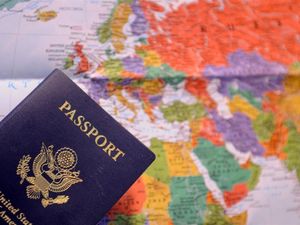U.S. High Court Takes up Thorny Jerusalem Passport Case

The status of Jerusalem was debated Monday before the U.S. Supreme Court, where justices seem divided on a case over how the passports of Americans born in the holy city should be worded.
At issue is the constitutionality of a 2002 law directing the State Department to list "Israel" as the country of birth in the passports of U.S. citizens born in Jerusalem.
Israel claims Jerusalem as its capital, but neither the United States nor the international community recognizes the city -- which is holy to three faiths -- as such.
Both the government of former Republican president George W. Bush and that of his successor, current Democratic President Barack Obama, have said the law contravenes U.S. foreign policy.
So the U.S. high court has been asked to rule on separation of powers and which should prevail -- the president's power to conduct foreign policy, or Congress's power to pass legislation?
The nine justices took up the case -- for the second time -- of Menachem Zivotofsky, who was born in Jerusalem in 2002 to two American parents who want "Israel" noted in his passport under "place of birth".
If the boy had been born in Tel Aviv or other Israeli cities, his passport would indicate Israel as his place of birth. Under usual practices, U.S. authorities list a country, not a city, as a place of birth.
But the State Department -- responsible for issuing passports -- simply lists "Jerusalem" in the documents as the place of birth of any Americans born there, without giving a country.
Just before Zivotofsky was born, the U.S. Congress passed the 2002 law at issue.
Bush signed the bill into law, but he added a signed statement condemning it as unconstitutional interference in the president's powers to conduct foreign policy.
Then in November 2011, the Obama administration argued at a hearing that to list Israel as the country of birth would be tantamount to recognizing Jerusalem as the capital of the country -- something it is unwilling to do.
In March 2012, the top court ruled that the Zivotofsky suit was legally admissible, but did not rule on the underlying issue.
On Monday, Justice Elena Kagan called the Jerusalem issue a "tinderbox" -- highlighting the complicated issues at stake.
The panel of justices appeared split on the merits, with some backing the executive branch's case, and others musing as to whether the law actually infringed on the presidential power to make foreign policy.
The Obama administration has argued that enforcing the law passed by Congress would imply U.S. recognition of the disputed capital, and endanger delicate diplomatic efforts to reach a Middle East peace deal with the Palestinians.

"Then in November 2011, the Obama administration argued at a hearing that to list Israel as the country of birth would be tantamount to recognizing Jerusalem as the capital of the country -- something it is unwilling to do."
As the US includes the country and not the city in its passports, does this already mean that the US recognises Haifa as the capital of Israel, Sidon as the capital of Lebanon, or Manchester as the capital of the UK.
Including Jerusalem in Israel in no way recognises it as the capital of the country.